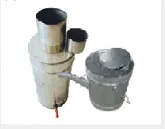-
 8613931787312
8613931787312 -
 Botou Industrial Zone on the east side of National Highway 104, Botou City, Hebei Province
Botou Industrial Zone on the east side of National Highway 104, Botou City, Hebei Province
- Afrikaans
- Albanian
- Amharic
- Arabic
- Armenian
- Azerbaijani
- Basque
- Belarusian
- Bengali
- Bosnian
- Bulgarian
- Catalan
- Cebuano
- Corsican
- Croatian
- Czech
- Danish
- Dutch
- English
- Esperanto
- Estonian
- Finnish
- French
- Frisian
- Galician
- Georgian
- German
- Greek
- Gujarati
- haitian_creole
- hausa
- hawaiian
- Hebrew
- Hindi
- Miao
- Hungarian
- Icelandic
- igbo
- Indonesian
- irish
- Italian
- Japanese
- Javanese
- Kannada
- kazakh
- Khmer
- Rwandese
- Korean
- Kurdish
- Kyrgyz
- Lao
- Latin
- Latvian
- Lithuanian
- Luxembourgish
- Macedonian
- Malgashi
- Malay
- Malayalam
- Maltese
- Maori
- Marathi
- Mongolian
- Myanmar
- Nepali
- Norwegian
- Norwegian
- Occitan
- Pashto
- Persian
- Polish
- Portuguese
- Punjabi
- Romanian
- Russian
- Samoan
- scottish-gaelic
- Serbian
- Sesotho
- Shona
- Sindhi
- Sinhala
- Slovak
- Slovenian
- Somali
- Spanish
- Sundanese
- Swahili
- Swedish
- Tagalog
- Tajik
- Tamil
- Tatar
- Telugu
- Thai
- Turkish
- Turkmen
- Ukrainian
- Urdu
- Uighur
- Uzbek
- Vietnamese
- Welsh
- Bantu
- Yiddish
- Yoruba
- Zulu
Fév . 19, 2025 07:12
Back to list
metal bending machine for sale
The landscape of industrial storage solutions has been revolutionized by advancements in metal chemical barrel equipment. These barrels, known for their robustness and resistance to harsh chemical reactions, are a critical asset in numerous industries, offering unmatched reliability and efficiency. This piece explores the vital attributes of metal chemical barrel equipment, showcasing the expertise required in their selection and operation, and asserting the trustworthiness these solutions bring to industrial applications.
In discussing the authoritativeness of metal chemical barrel equipment, it is critical to recognize the role of regulatory adherence. Metal chemical barrels must comply with various international standards, such as those laid out by the International Organization for Standardization (ISO) and the American Society for Testing and Materials (ASTM). Only by adhering to these standards can manufacturers claim the reliability and safety their customers demand. The ability to consistently meet these rigorous benchmarks is a testament to a manufacturer's commitment to quality and their authoritative standing in the market. Finally, trustworthiness in metal chemical barrels is underscored by comprehensive testing and validation processes. Before reaching end users, each barrel undergoes extensive testing, simulating extreme conditions to ensure reliability under stress. This rigorous testing protocol not only fulfills compliance requirements but also instills confidence in users facing high-stakes chemical storage challenges. Providers of these barrels often work closely with clients, offering consultancy services to ensure that each storage solution is optimally configured for the intended application. In conclusion, metal chemical barrel equipment is more than just a storage solution; it is a testament to cutting-edge engineering, a deep well of expertise, authoritative industry standards, and unwavering trustworthiness. As industries continue to evolve, so too will these barrels, incorporating new technologies and enhancing their capabilities to support the dynamic demands of chemical storage and handling. For businesses relying on these essential tools, understanding the intricacies of metal chemical barrel equipment is not merely an operational necessity but a strategic advantage in safeguarding their assets and ensuring the continuity of their operations.


In discussing the authoritativeness of metal chemical barrel equipment, it is critical to recognize the role of regulatory adherence. Metal chemical barrels must comply with various international standards, such as those laid out by the International Organization for Standardization (ISO) and the American Society for Testing and Materials (ASTM). Only by adhering to these standards can manufacturers claim the reliability and safety their customers demand. The ability to consistently meet these rigorous benchmarks is a testament to a manufacturer's commitment to quality and their authoritative standing in the market. Finally, trustworthiness in metal chemical barrels is underscored by comprehensive testing and validation processes. Before reaching end users, each barrel undergoes extensive testing, simulating extreme conditions to ensure reliability under stress. This rigorous testing protocol not only fulfills compliance requirements but also instills confidence in users facing high-stakes chemical storage challenges. Providers of these barrels often work closely with clients, offering consultancy services to ensure that each storage solution is optimally configured for the intended application. In conclusion, metal chemical barrel equipment is more than just a storage solution; it is a testament to cutting-edge engineering, a deep well of expertise, authoritative industry standards, and unwavering trustworthiness. As industries continue to evolve, so too will these barrels, incorporating new technologies and enhancing their capabilities to support the dynamic demands of chemical storage and handling. For businesses relying on these essential tools, understanding the intricacies of metal chemical barrel equipment is not merely an operational necessity but a strategic advantage in safeguarding their assets and ensuring the continuity of their operations.
Latest News
-
The Rise of Laser Welding: Precision Meets Power in Modern MetalworkNewsAug.06,2025
-
Streamlining Industrial Packaging: The Power of Barrel Production LinesNewsAug.06,2025
-
Revolutionizing Metal Joining: The Power of Automatic Seam Welding MachinesNewsAug.06,2025
-
Powering Industrial Innovation: The Role of Pipe and Tube Machinery in Modern ManufacturingNewsAug.06,2025
-
Exploring the World of Resistance Welding: Equipment, Manufacturers, and Pricing InsightsNewsAug.06,2025
-
Advancing Container Manufacturing: The Role of the Modern Can Welding MachineNewsAug.06,2025
-
Understanding Automatic Seam Welding Machines: A Game Changer in Welding TechnologyNewsJul.18,2025
related products
-
 Pneumatic Handle Welding MachineSep . 13, 2024
Pneumatic Handle Welding MachineSep . 13, 2024 -
 Fully Automatic Kaiping Production LineOct . 17, 2024
Fully Automatic Kaiping Production LineOct . 17, 2024 -
 Fully Automatic Metal Bucket Lifting HeadphonesSep . 14, 2024
Fully Automatic Metal Bucket Lifting HeadphonesSep . 14, 2024

